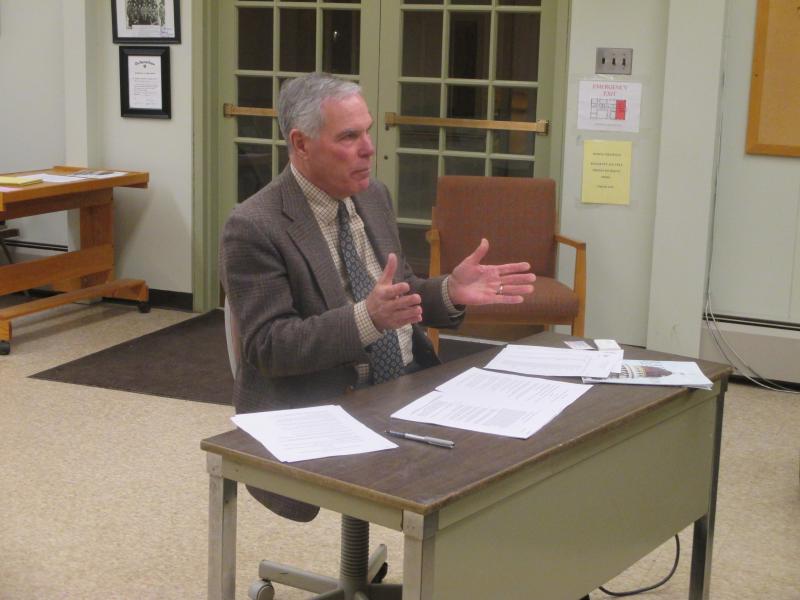Maine Preservation offers commissioners advice
A representative from Maine Preservation offered some advice and encouragement to Wiscasset’s Historic Preservation Commission Thursday evening, March 3.
Christopher Closs, a field service adviser, described Maine Preservation based in Yarmouth as a non-profit organization organized in 1972 with 1,000 members. The group assists communities both large and small with historic preservation and restoration of buildings and properties. It also lends support for economic development and downtown revival projects. “Consider us a resource you can draw upon,” he said
Closs was surprised to hear Wiscasset’s historical preservation ordinance was less than a year old. “In general, I think it’s a sound document, more regulatory rather than advisory,” he said during the meeting at the municipal building.
He suggested it would be beneficial if the commission were to project itself more as a resource people could contact for help and guidance.
“More people are realizing the benefits of preserving historic properties and what restoring and maintaining them can add to property values,” he said. It was important for the commissioners to “spread the word” as far as what preservation can do for Wiscasset.
Closs told the commissioners something they might consider was applying for Certified Local Government Program status. “When you have that, it will entitle you to apply for (state) grant monies every year for planning activities.” Grants are typically between $10,000 and $20,000, he continued. The historic commission might use the funding for a number of projects. As an example he suggested having an architectural survey done of buildings and other structures within the town’s historic district.
“You feel it would be advantageous for us to get this (CLGP) status now?” asked John Reinhart.
“I do,” Closs said. The commissioners would further benefit by gaining CLGP status for the yearly training it offers to historic commissioners, he said.
On another topic, Closs said when a property gets status on the National Register of Historic Places, it doesn’t mean it’s thoroughly protected. NRHP is more of an honorary designation but has “no teeth in it,” he explained. On the other hand, local ordinances governing historic districts or structures can be made as restrictive as a community desires.
Rather then trying to regulate things like the color of paint someone might use on their business or home within the historic district, Closs said the commissioners would be better served by putting restrictions on architectural changes, like doors, windows and entryways. He further advised the commissioners to steer clear of adding a provision within the town’s historic ordinance for regulating building interiors.
It’s always best to reach out to property owners and explain to them the importance of historic preservation and how this benefits not only them but also the community as a whole, he said. Closs added it was always good practice to keep the town planner, planning board and code enforcement officer aware of what the commission was doing.
Throughout the discussion Closs drew from his experiences working with other communities. He mentioned Gardiner, Hallowell, Damariscotta, Norway and Biddeford among those that Maine preservation has assisted. To learn more about Maine Preservation visit: www.mainepreservation.org.
The next meeting of the Wiscasset Historic Preservation Commission will be at 5 p.m., April 7 at the municipal building.
Event Date
Address
United States
























